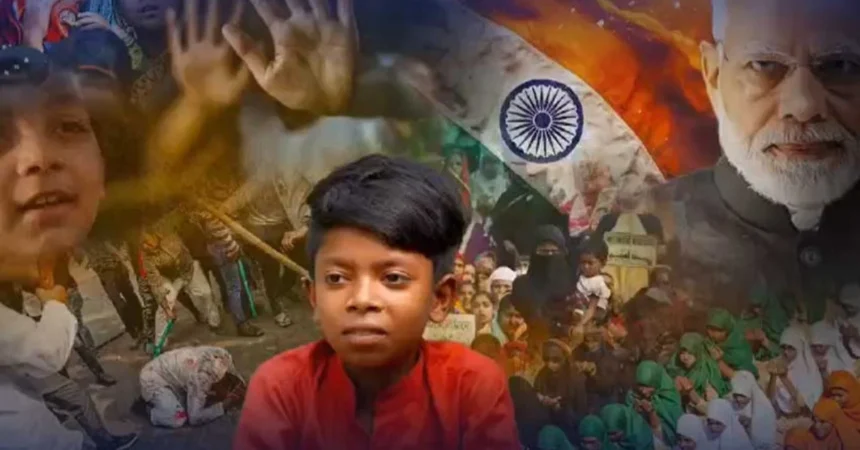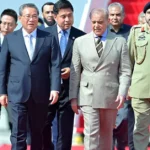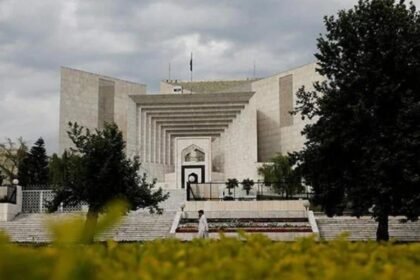Introduction:
The U.S. Commission on International Religious Freedom (USCIRF) has once again designated India as a “country of particular concern” (CPC), sparking a global conversation about the country’s religious freedom status. This move comes after growing concerns over India’s treatment of its religious minorities, particularly Muslims, Christians, and Dalits. The CPC designation is the harshest label used by the USCIRF, indicating severe violations of religious freedom in a country. For several years, India has faced accusations of failing to protect its religious minorities from persecution, violence, and discrimination.
This article will provide an in-depth analysis of the religious freedom concerns raised by the USCIRF, India’s response, the potential impact of this designation, and reactions from the international community. We will also explore how the situation has developed over time, what the future holds for religious freedoms in India, and the broader implications for international relations.
Background of the USCIRF’s Designation
The USCIRF is an independent U.S. government advisory body that monitors and reports on violations of religious freedom around the world. Each year, it issues recommendations to the U.S. State Department on which countries should be designated as “countries of particular concern” based on their records on religious freedom. Countries that receive this designation are often subjected to diplomatic or economic sanctions as a way of encouraging them to improve their religious freedom policies.
In recent years, the USCIRF has repeatedly recommended India for CPC status due to its deteriorating situation for religious minorities. Despite these recommendations, the U.S. State Department has not officially designated India as a CPC, likely due to the strategic relationship between the two countries. However, the USCIRF’s recommendations carry significant weight in shaping global perceptions of India’s religious freedom record.
Key Concerns Highlighted by the USCIRF
The USCIRF’s 2024 report highlighted several key areas of concern regarding religious freedom in India. These concerns largely center around actions and policies implemented by India’s ruling Bharatiya Janata Party (BJP) and their broader effects on religious minorities.
- Anti-Conversion Laws: A major area of concern for the USCIRF is the proliferation of anti-conversion laws across several Indian states. These laws, which are purportedly designed to prevent forced religious conversions, have been criticized for being used to target Christians and Muslims, particularly those who convert from Hinduism. While proponents argue that these laws protect vulnerable populations from coercion, critics say they infringe on the right to religious freedom by making it difficult for individuals to change their faith.
- Mob Violence and Lynchings: There has been a disturbing rise in mob violence and lynchings, often driven by rumors of cow slaughter, inter-religious relationships, or allegations of blasphemy. Many of these incidents have targeted Muslims and Dalits, groups that are often marginalized in Indian society. The USCIRF report noted that the government’s failure to prosecute those responsible for these attacks has created a climate of impunity, where perpetrators feel emboldened to commit acts of violence without fear of consequence.
- Citizenship Amendment Act (CAA): The CAA, passed in 2019, provides a pathway to Indian citizenship for refugees from neighboring countries, but only if they are non-Muslims. Critics argue that the CAA, when combined with the proposed National Register of Citizens (NRC), could lead to widespread disenfranchisement of Indian Muslims, who may be unable to prove their citizenship status. The USCIRF report highlighted the CAA as a significant violation of religious freedom, as it discriminates against Muslims by excluding them from the law’s protections.
- Persecution of Religious Leaders: Religious leaders from minority communities have also faced persecution, harassment, and arrest. Christian pastors and Muslim clerics have been particularly targeted under laws that criminalize conversions, often with little evidence to support accusations of forced conversions.
- Hindutva Ideology and Polarization: The rise of Hindutva, an ideology that promotes the supremacy of Hindu culture and religion, has further exacerbated religious tensions in India. The USCIRF report noted that government policies and rhetoric under the BJP have contributed to increasing polarization between religious communities, particularly Hindus and Muslims.
India’s Response
India has consistently rejected the USCIRF’s reports and recommendations, calling them biased and inaccurate. The Indian Ministry of External Affairs has criticized the USCIRF for not fully understanding India’s complex and diverse society. India’s government maintains that the country’s constitution guarantees religious freedom and that any incidents of violence or discrimination are isolated and do not reflect broader government policy.
Officials in New Delhi argue that the USCIRF’s recommendations are politically motivated and influenced by anti-India lobbyists. They also assert that India, as a sovereign nation, will not allow foreign entities to interfere in its internal affairs. India’s defenders claim that the country has a long history of religious tolerance and that the USCIRF is unfairly singling out the country for criticism.
International Reactions and Diplomatic Consequences
The USCIRF’s designation of India as a country of particular concern has reignited debates about religious freedom in the world’s largest democracy. While the U.S. government has so far not followed the USCIRF’s recommendation to designate India as a CPC, the report has put pressure on other Western governments to reassess their relationships with India in light of its human rights record.
Some human rights organizations, including Amnesty International and Human Rights Watch, have echoed the USCIRF’s concerns, calling for stronger international action to address religious persecution in India. These organizations have highlighted the need for diplomatic pressure and economic sanctions to encourage the Indian government to take meaningful steps to protect religious minorities.
The USCIRF’s report may also have implications for U.S.-India relations. The two countries have developed a close strategic partnership in recent years, particularly in the areas of defense and trade. However, growing concerns over India’s human rights record could strain this relationship, especially if the U.S. government faces domestic pressure to take a stronger stance on religious freedom issues.
The Future of Religious Freedom in India
The outlook for religious freedom in India remains uncertain. On one hand, the BJP continues to enjoy broad electoral support, particularly among Hindu nationalists who favor the party’s policies. This makes it unlikely that the government will make significant changes to its approach toward religious minorities in the near future.
On the other hand, civil society organizations, religious leaders, and activists within India continue to push for greater protections for religious minorities. There have been protests, court cases, and grassroots efforts aimed at countering religious discrimination and violence. While these efforts face significant challenges, they represent a vital counterbalance to the forces of religious intolerance.
The international community also has a role to play in shaping the future of religious freedom in India. Diplomatic pressure, economic incentives, and support for civil society initiatives can help encourage the Indian government to uphold its commitment to religious freedom and protect the rights of all its citizens, regardless of their faith.
The USCIRF’s designation of India as a country of particular concern highlights the ongoing challenges facing religious minorities in the country. While the Indian government disputes these claims, the international community remains deeply concerned about rising intolerance, violence, and discrimination against religious groups in India. The future of religious freedom in India will depend on the ability of civil society, both domestically and internationally, to hold the government accountable and push for greater protections for minority communities.
In addition to internal efforts, India’s judicial system could also play a critical role in safeguarding religious freedom. The courts have occasionally intervened to protect the rights of religious minorities, though the effectiveness of these interventions has been mixed. Continued engagement with the judiciary, through legal challenges against discriminatory laws and practices, will be essential in ensuring that constitutional protections for religious freedom are upheld.
Moreover, sustained pressure from international human rights organizations and advocacy groups is vital to keeping the issue of religious freedom in India on the global agenda. The ability of these organizations to raise awareness, gather evidence, and apply diplomatic pressure could push India to reconsider its current policies. Ultimately, the future of religious freedom in India will hinge on a combination of domestic activism, judicial intervention, and international diplomacy working in tandem to combat religious discrimination and promote inclusivity.
#USCIRF #ReligiousFreedom #India #HumanRights #MinorityRights #ReligiousPersecution #InternationalRelations #CitizenshipAmendmentAct #Hindutva #IndiaNews







